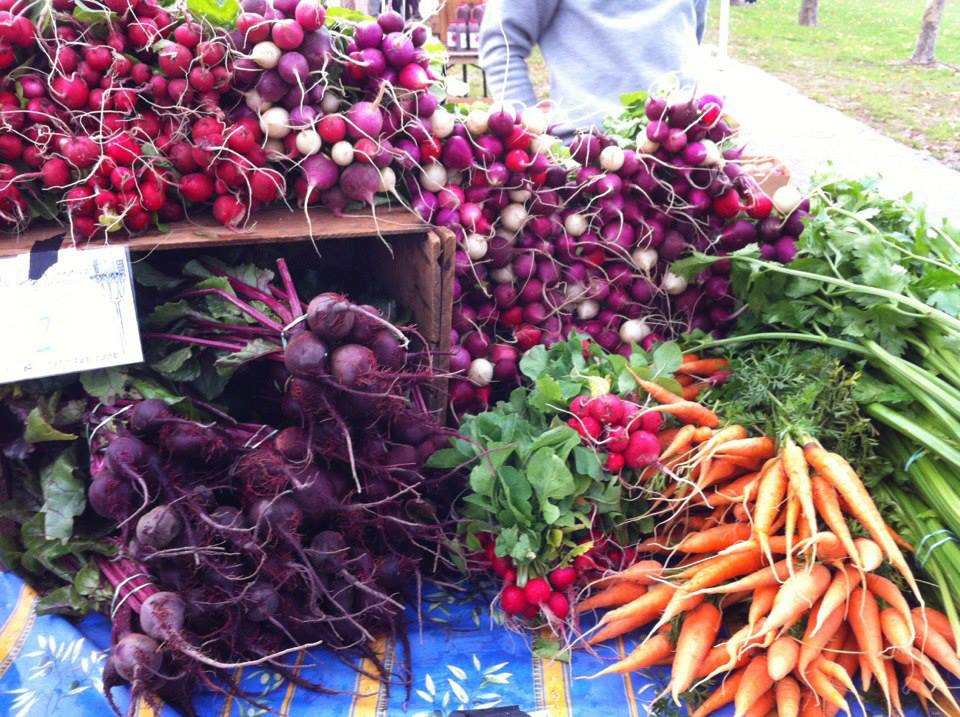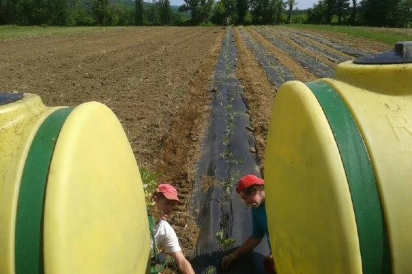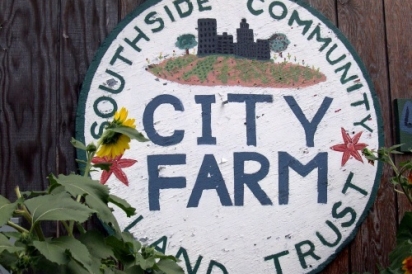Beyond the Office: Summer Farm Interns
We all love going to farmers’ markets to pick up local produce. But what we often forget is the effort it takes to get that produce from seed to stand. Farming is difficult, detail-oriented work and farms need as much help as they can get, especially in the high-production summer months. Summer farm interns can help save the day, or the harvest. Many students spend their summers getting coffee and making copies. The ones who want to get their hands dirty become farm interns.
Are these students aspiring farmers? Not necessarily. But they do come away from their summers with a greater appreciation for their food and a fresh set of gardening skills to add to their tool belt.
Many farm interns supplement their incomes – farm internships are often unpaid – with other jobs. Regan Lichtenberg, an intern at Cityfarm, also waits tables and works at the Swearer Center for Public Service at Brown University. Lena Sclove, an intern at Sidewalk Ends Farm, also works at English for Action as a facilitator for English language classes. Clearly, social justice and public service are present in the minds of these young women. Lichtenberg also hopes to bring her knowledge to the John Hope Settlement House community garden, where she will continue to work this coming year. Will O’Meara works at Waldingfield Farm in Washington, Connecticut, and says he plans on bringing his skills back to his university in the fall, where there is currently a blossoming movement towards urban farming and rooftop gardens.
Students are drawn toward this experience for a number of reasons. For many, it is a chance to find an intersection between their academic interests and a unique, hands-on summer job. And spending summer days outside, rather than in an office, is a huge plus. Sclove says that “the intense joy and spiritual connection [she feels] from being so close to the earth, and intimately engaged with the life of the plants” is what draws her to farming.
Garden work is tough, farm interns all agree. O’Meara not-so-fondly remembers getting “an unexpected shower” of fertilizer, “a concoction of bottom-feeding fish that is blended into a pungent, brown, oily liquid”. Sounds appetizing, right? But the benefits far outweigh the costs. Sclove and Lichtenberg agree that harvesting is the highlight. “Especially the peas!” Because they have seen their crops through every step of the process, picking a fresh veggie is infinitely satisfying. They “really have a hand in every aspect…from the initial planting of each crop to harvesting and selling it”, says O’Meara.
The tasks change as the summer progresses, but you can rest assured that there is never a dull moment. Early summer requires a lot of transplanting, high summer involves harvesting, and they are also always preparing beds for planting, mulching, watering, and weeding. Among the interns I spoke to, the excitement about what they were doing was evident. The skills and knowledge that these students gain from their summer experiences on farms will stay with them forever. And not only do they feel as though they gain a new perspective, but they are given the tools to change others’ lives as well. O’Meara says that his biggest takeaway from his three summers at Waldingfield is being able to “explain to someone why organic vegetables cost more and why they are worth it, and how to show people that their connection with their food and farmers is important, and often overlooked”.
Next time you’re picking up some farm fresh fruits and veggies at your local farmers’ market, give the intern a high-five. Instead of making coffee and copies, they’re making your life a little more delicious.







